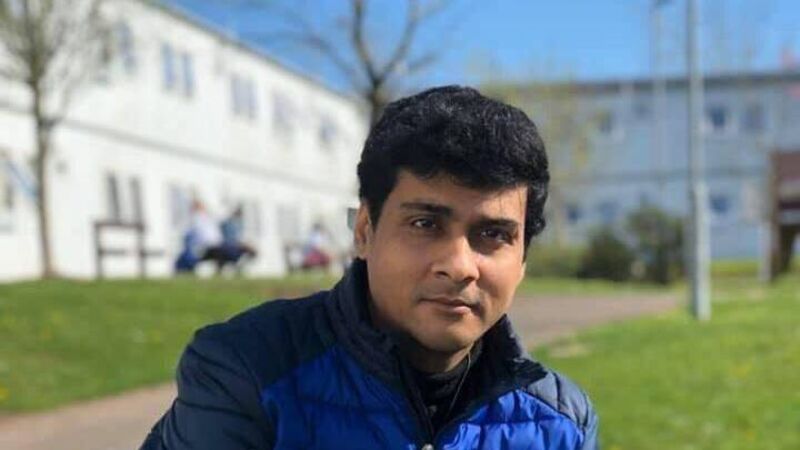'Cork is my family': Asylum seeker pleading with Justice Minister to allow him to remain in place he calls home

Nadim Hussain, who is originally from India, described Cork as his “family”.
AN ASYLUM seeker who has been living and working in Cork for three years is pleading with the Minister for Justice to allow him to remain in the place he now calls home.
Nadim Hussain, who is originally from India, works in security, including at hospitals and described Cork as his “family”.
During the pandemic, he also worked in a restaurant that provided take away services and continued to go to work during Covid-19 restrictions.
Last week, Mr Hussain received a letter from the International Protection Appeal Tribunal.

The letter, which was seen by The Echo, affirmed a recommendation of the International Protection Officer, which stated that Mr Hussain should be refused a declaration as a refugee and refused subsidiary protection status.
When asked how he felt after he received the letter, he said: “depression”.
“I’m giving my time, my taxes, my everything. Day and night I’m working for this country. In the pandemic, I’m working- Level 5, I’m working…. they used me," he told the Echo.
Having lost both of his parents during riots in India, he described Cork as his family.
“In my life, there is no mother, no brother, nobody is here. Now, this is my family. Cork is my family.
“I’m giving security and there is no security for me.”
Mr Hussain is planning a protest outside Kinsale Road Direct Provision Centre on Friday and has urged the Minister for Justice to grant him permission to remain.
Cork North Central TD Thomas Gould met with Mr Hussain to discuss his situation following the letter.
Mr Gould said that Mr Hussain outlined fears that if he was to have to return to his home country, his life would be in danger.
“It just goes to the heart of the whole issues around Direct Provision and how the Direct Provision system has completely failed and is flawed,” said Mr Gould.
“It’s in the Programme for Government that the government is going to take action on this, but we have [Nadim] now who is at risk if he goes back home.”
Solidarity TD Mick Barry, who was also in contact with Mr Hussain, said that he should be allowed to stay in Ireland.
“What happened to his family is horrific and he would not be safe if he were to be deported to India.
“Apart from that, he has contributed to Irish society by working in our hospitals during the pandemic and paying taxes. I will be highlighting his case until such time as justice and fair play prevails.”
The Department of Justice does not comment on individual cases. However, it said that each application for international protection is examined in detail on its individual merits, taking all factors into account.
“The permission to remain process includes a full consideration of their private and family rights in accordance with the European Convention on Human Rights as well as consideration of their work situation, among other issues.
“For those who are in the international protection process, our objective is to have decisions made on their applications and permission to remain considerations as soon as possible.
"This ensures that those who are found to be in need of our protection can receive it quickly and begin rebuilding their lives here with a sense of safety and security.”
For those found not to be in need of international protection, a full consideration of all aspects of their case is considered before a Deportation Order is made.
All appellants who come before the independent International Protection Appeals Tribunal (IPAT) have their appeals assessed on “an individual, objective and impartial basis”.
“This is based on precise and up-to-date information from various sources, such as the UNHCR, (United National Human Rights Council), as to the general situation prevailing in the country of origin of the appellant concerned, including such information contained in submissions made by them or on their behalf.
“The principle of non-refoulement applies to decisions made on international protection applications."
Under international human rights law, the principle of non-refoulement guarantees that no one should be returned to a country where they would face torture, cruel, inhuman or degrading treatment or punishment and other irreparable harm.







 App?
App?


